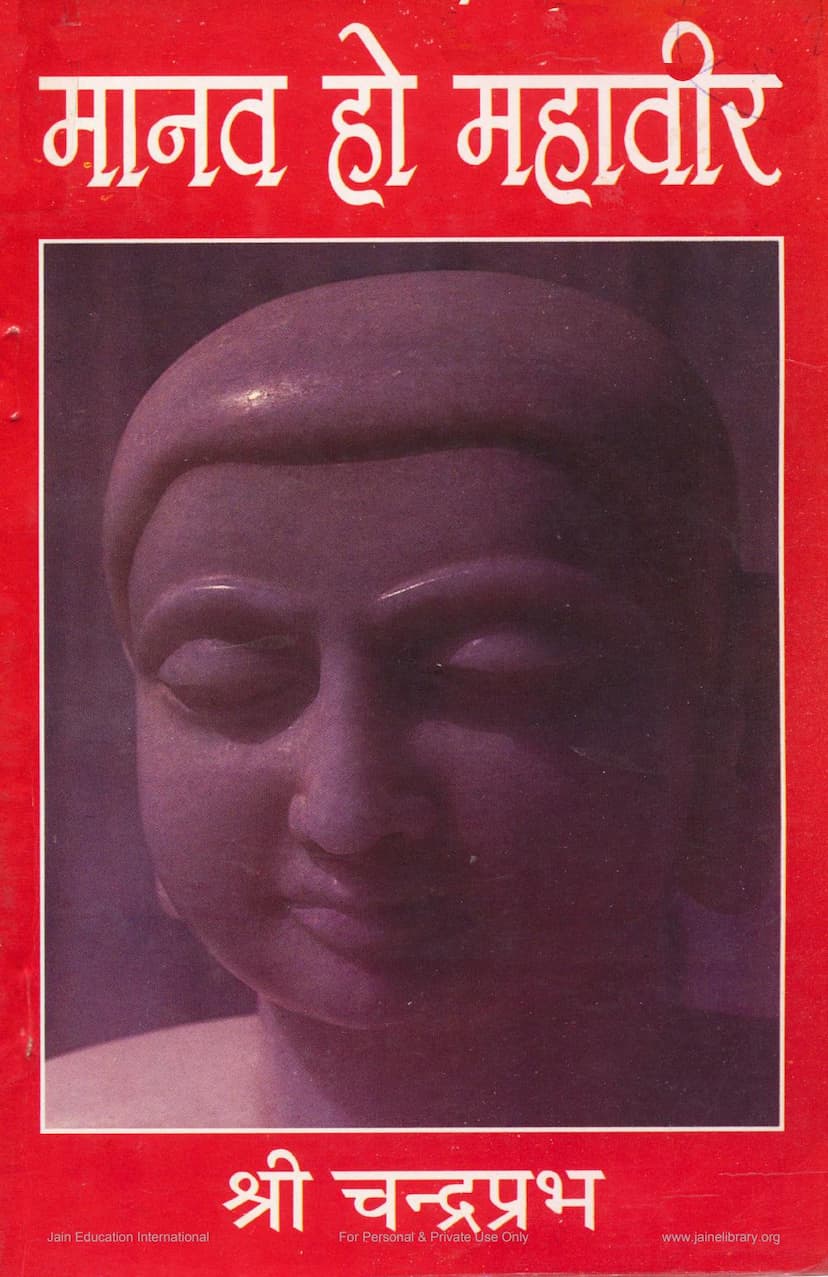Manav Ho Mahavir
Added to library: September 2, 2025

Summary
The book "Manav ho Mahavir" (Be a Mahavir) by Chandraprabhsagar, published by Jityasha Foundation, is a spiritual guide that encourages readers to embody the qualities and teachings of Lord Mahavir, the 24th Tirthankara of Jainism. The central theme of the book is the potential within every human being to attain spiritual enlightenment and live a life of righteousness, peace, and compassion, just like Mahavir.
Here's a summary of the key messages and themes presented in the book, based on the provided text:
Core Message: Emulating Mahavir's Path
- Inner Potential: The book emphasizes that Mahavir was a human being, and his spiritual journey and attainment of liberation are attainable by all humans. The title itself, "Manav ho Mahavir," is a call to aspiring to the greatness of Mahavir.
- Beyond Birthright: True spirituality is not inherited by birth into a particular religious lineage (like Jainism). It is achieved through one's actions, thoughts, and adherence to righteous principles. Someone not born into a Jain family but embodying Mahavir's teachings is considered a more devout follower than someone born Jain but not practicing the principles.
- Focus on Self: While the teachings and lives of Mahavir, Buddha, and other spiritual luminaries are inspiring, the ultimate journey is inward. The book stresses the importance of understanding and transforming oneself before solely focusing on external figures. Knowing oneself is the prerequisite to knowing the divine.
- Peace as the Goal: The ultimate aim of spiritual endeavor is peace. The book explores the challenge of quieting the incessant chatter of the mind and finding inner stillness.
Key Teachings and Concepts:
- The Power of Memory and Inspiration: Remembering great souls like Mahavir and Buddha serves as a guiding light, a "chirag" (lamp), to help navigate the darkness of ignorance and lead towards the "sun" of spiritual realization.
- The Importance of Self-Reflection and Action: Simply discussing Mahavir or Buddha is insufficient. The focus must be on understanding their life principles and integrating them into one's own life. This requires self-reflection and transforming one's conduct.
- Distinguishing Birth-Religion from Action-Religion: The book critiques the tendency to identify solely with one's religious birthright without embodying the core values. True religion (Dharma) is based on actions, conduct, and inner transformation, not just outward rituals or lineage.
- The Concept of "Karmajatt" vs. "Janmjatt": The book differentiates between being religious by birth ("Janmjatt") and being religious by action or conviction ("Karmajatt"). The latter is considered more authentic and impactful.
- Universal Spiritual Principles: The book suggests that the core principles of various spiritual paths, like Mahavir's emphasis on truth and non-violence, and Buddha's Middle Path, are universally applicable and connect humanity. The division and conflict often arise from later interpretations and human politics rather than the original teachings.
- The Human Body as a Temple: The physical body is not to be neglected but is considered a sacred temple for the soul. Maintaining physical and mental health is crucial for spiritual practice. The book quotes Vaagbhatta's principles for healthy living, emphasizing balanced diet, mindful behavior, self-control, truthfulness, and compassion.
- Living in the Present Moment: The book highlights the importance of living in the present moment ("vartaman") and utilizing each moment effectively. Wasting time through idle thoughts, regrets about the past, or anxieties about the future is seen as a spiritual loss.
- The Transformative Power of Thought: Our thoughts shape our reality and personality. Positive and constructive thinking leads to a transformed life, while negative and destructive thoughts lead to downfall. The book encourages "Vipashyana" (insight meditation) of thoughts to purify them.
- The Essence of True Devotion: True devotion is not mere ritualistic worship of idols but living according to the principles of the enlightened ones and striving to embody their virtues. The ultimate goal is to become like them.
- The Call to Inner Transformation: The book repeatedly calls for an inner shift, a transformation of consciousness. It advocates for letting go of superficiality, ego, and external displays of religiosity in favor of genuine inner purity, compassion, and equanimity.
Structure and Content:
The book appears to be a compilation of discourses or spiritual reflections, likely drawn from the author's teachings and guidance. It covers various aspects of spiritual living, addressing the individual's journey from the mundane to the divine. The text also includes a catalog of related books by the same authors and foundation, suggesting a broader effort to disseminate spiritual knowledge.
In essence, "Manav ho Mahavir" is an inspirational call to awaken the divine potential within every human, urging readers to actively pursue a life of virtue, self-discipline, and inner peace, guided by the luminous example of Lord Mahavir.